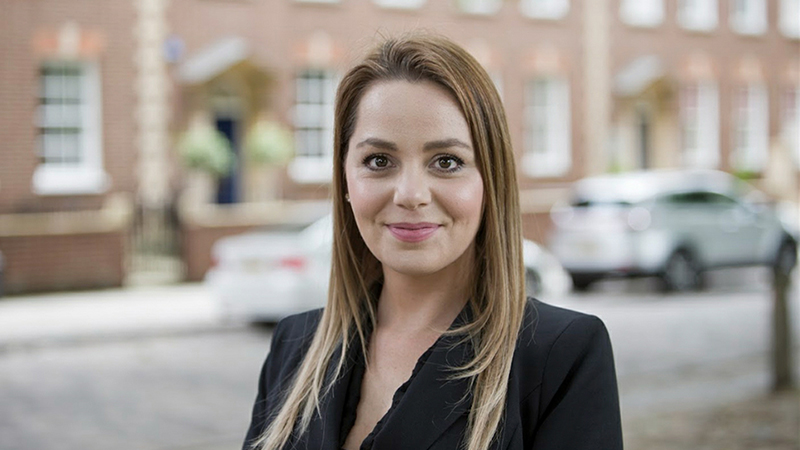Q: What is the biggest change you have seen in the industry since you joined?
I’ve seen a step change in awareness and acknowledgment that the industry hasn’t historically been representative of wider society, and that there is strength in greater diversity. As a result, there is an authentic push to address that. When I joined the industry, I felt out of place – not only because of my gender but because of my socioeconomic background relative to my peers. But there wasn’t any dialogue around that – within the industry, or in society more broadly.
Now, we have schemes such as Investment 20/20, 10,000 Black Interns, 10,000 Able Interns and Girls Are Investors Network providing practical support. We have pay-gap reporting to help inform career choices, and increasingly we have visible role models from diverse backgrounds. This is important, not only for my own experience as a practitioner but as someone who sees our industry first and foremost as a service. We can’t provide that service effectively to all of society if collectively we don’t look like all of society.
Q: What is the investment topic most often brought up by your clients?
I would say the biggest overarching theme for a number of years has been around climate change and environmental destruction – the ‘E’ in ESG if you like – but more recently I have seen an uptick in clients who have a greater focus on ‘S’ issues, such as equality and human rights.
In addition, clients’ understanding of the nuance and complexity around different issues has developed to the extent that the conversation about investments is less about, ‘Don’t hold that company, it does something I don’t like’ and more about, ‘What companies are going to be part of fixing this massive global problem that concerns me, and how will you make sure they do it?’.
Clients’ expectations are materially shifting from short-term performance as a result. We always say to investors they need to have a long time horizon to invest, but then in regular reviews invariably talk about what the portfolio has done over the preceding months. With sustainable investment, more of that conversation is around what change we have affected in that timeframe – how we have voted on shareholdings and engaged on issues they care about. I find it very easy to demonstrate the value-add of my role in this respect, which, of course, is important to clients, too.
Q: Which piece of regulation makes the biggest impact on your day-to-day role?
The evolving regulatory landscape around sustainability is the area I am most mindful of. I’m not too hung up on the labelling outlined under SDR, but rather the sentiment behind it; to protect against greenwashing.
As well as the client-facing element of my role, I am heavily involved in committee work and collaborate closely with our brilliant sustainable investment team. We continuously review how we protect the integrity of our sustainable offering, how we enhance our processes to incorporate new and improved data, and ultimately how we ensure we are delivering against our clients’ expectations.
I then try to distil all of that within the specific parameters of the bespoke portfolios I run for clients. Each new piece of regulation or guidance has a bearing on that, but it isn’t about box ticking for us, it’s about thought leadership and maintaining our position as a market leader in the sustainable investment space.
Q: What single change would you make to the wealth management industry?
As an industry, we could do more to address the general lack of financial education and engagement leaving so many people vulnerable – particularly around their retirement outcomes, but also vulnerable to scams and financial abuse. I personally think the Pensions Advice Allowance was a better idea in principle than it has been in practice, with pensions not always on an individual’s radar until later in life.
Perhaps a route to normalising financial advice, and making it more accessible, could be some kind of system across the industry where wealth managers are encouraged to take on a set number of hours of
pro bono work each year.
Q: What advice would you give to someone just starting in the industry?
Don’t be afraid to forge your own path.
BIOGRAPHY
Abika Martin has a decade of experience looking after the assets of private clients and charities. She joined LGT Wealth Management’s Bristol office in 2021 where she specialises in sustainable investing. Martin previously worked at Investec Wealth and Investment, and later co-managed Parmenion’s suite of model portfolios, including their ESG range, carrying out detailed fund research as an analyst. She brings this expertise to several of LGT WM’s Investment Committees.
See also: Ask the experts: How will ESG investing weather a recession?
This article first appeared in the March edition of Portfolio Adviser Magazine










